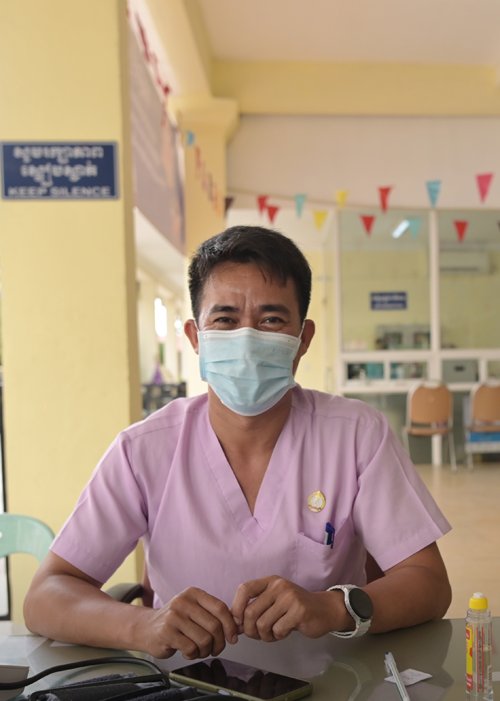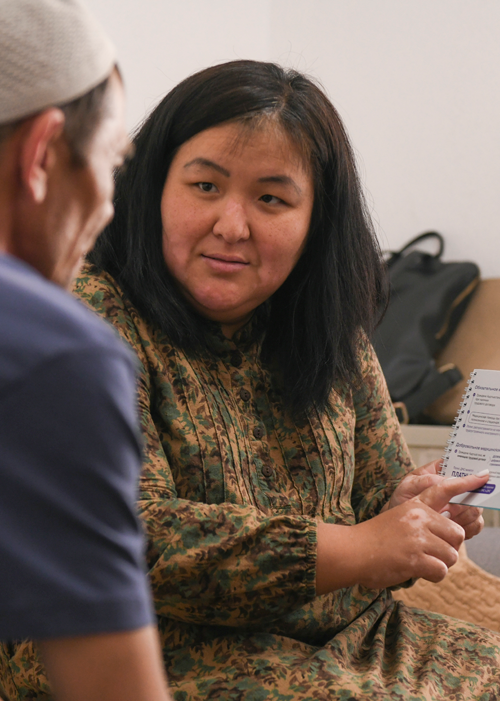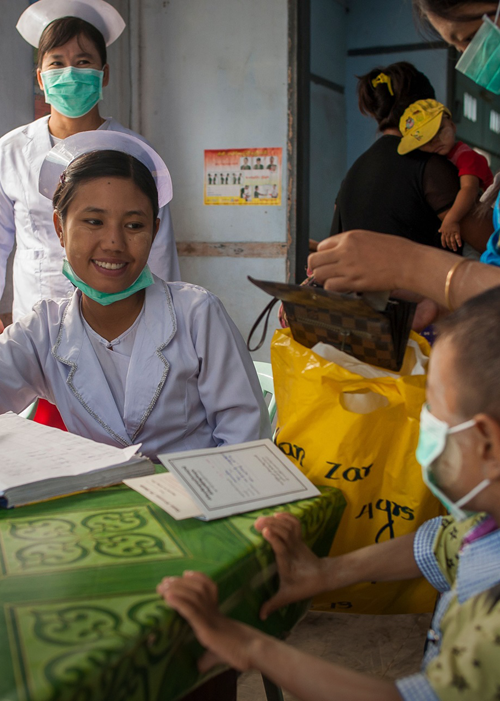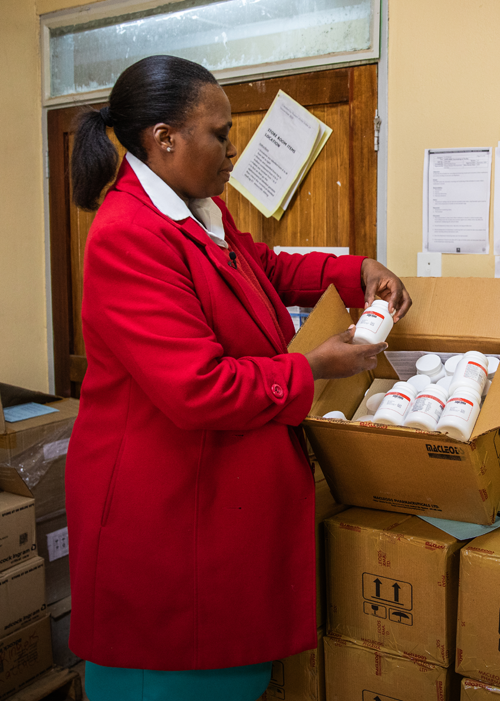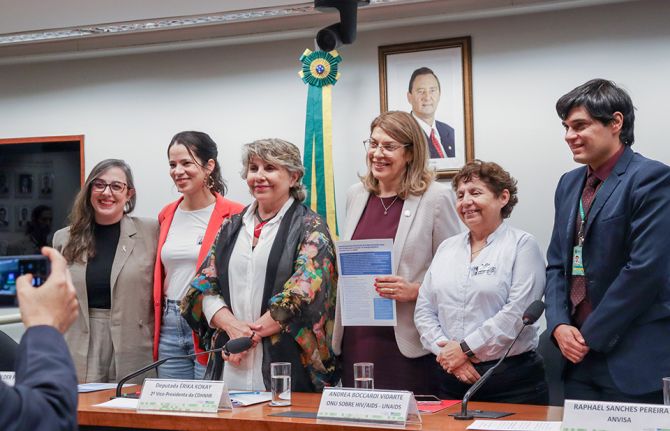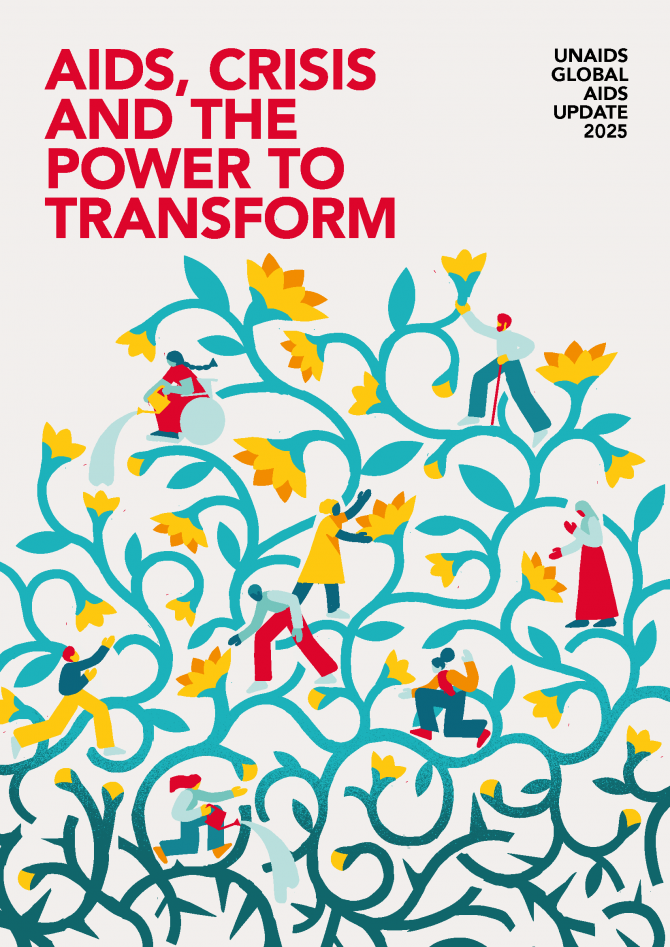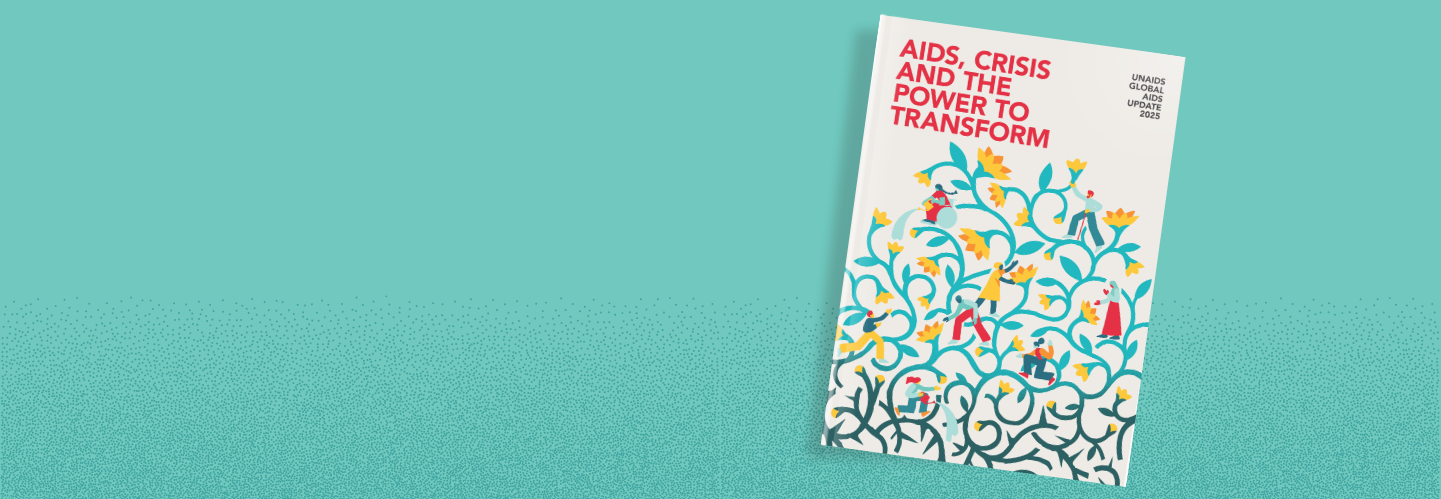

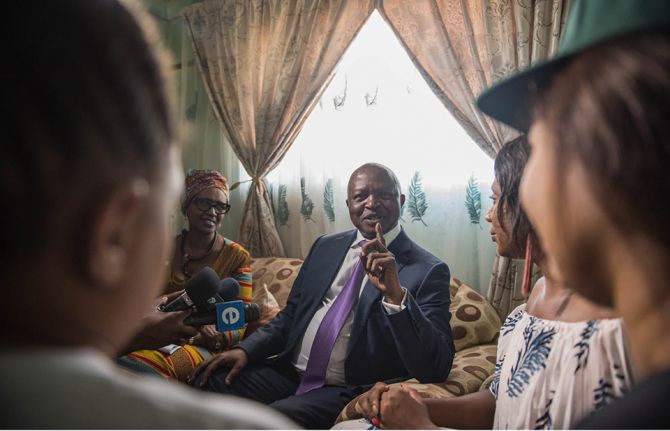
Press Statement
Statement by Winnie Byanyima, Executive Director of UNAIDS, on the Passing of Former Deputy President David Mabuza of the Republic of South Africa
04 July 2025 04 July 2025GENEVA, 4 July 2025—It is with profound sadness that UNAIDS learns of the passing of the former Deputy President of the Republic of South Africa, Mr David Mabuza.
I am deeply saddened by the news of the passing of Deputy President Mabuza. In 2019, I had the honour of launching the World AIDS Day Report alongside him in South Africa. It was immediately evident that his support was not simply a matter of policy, it was personal, grounded in a long history of community-based advocacy and inclusive leadership.
As Chair of the South African National AIDS Council (SANAC), Deputy President Mabuza was a key figure in advancing the country’s national response to HIV and tuberculosis. I was personally moved and assured by his unwavering commitment to ending AIDS as a public health threat. He consistently demonstrated compassion, clarity, and political will, particularly in tackling the deeply entrenched stigma and discrimination faced by people living with HIV.
Even before ascending to the role of Deputy President, he had laid strong foundations for health equity and social justice at provincial level and beyond.
Deputy President Mabuza’s leadership during the COVID-19 pandemic also reinforced his dedication to ensuring access to health services for all, including key and vulnerable populations affected by HIV. Under his stewardship, SANAC continued to drive multisectoral efforts aligned to South Africa’s National Strategic Plan on HIV, TB, and STIs.
His legacy is one of dignity, inclusion, and action. On behalf of UNAIDS, I extend our deepest condolences to his family, colleagues in government and civil society, and the people of South Africa. We honour his life and recommit ourselves to the vision he championed: a world free of AIDS, where no one is left behind.
Winnie Byanyima
Executive Director, UNAIDS
Region/country


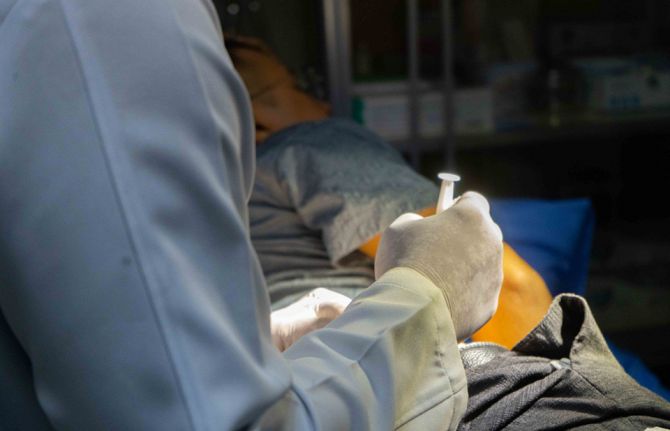
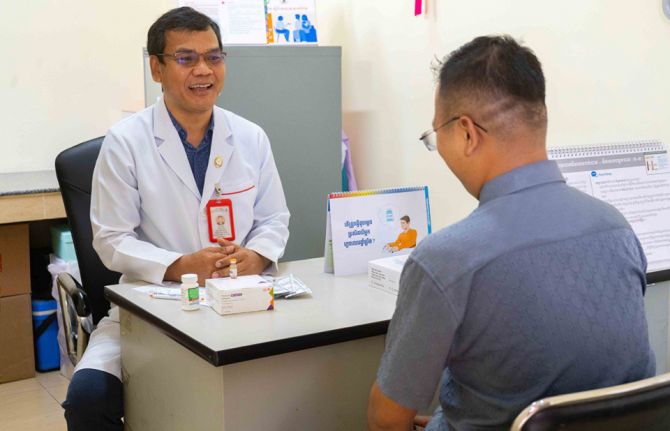
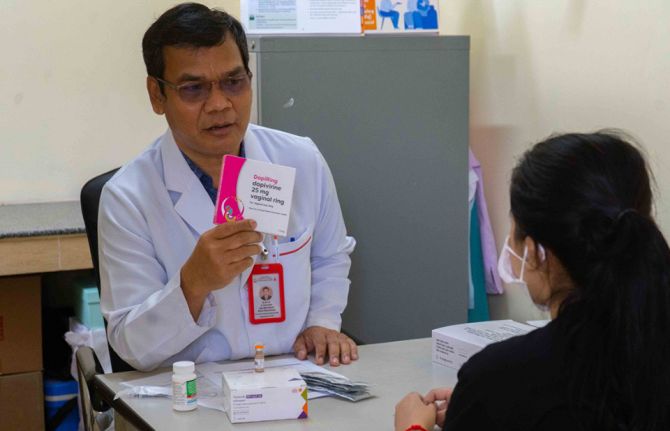
Feature Story
Cambodia becomes the second country in the Asia Pacific to offer long-acting PrEP
04 July 2025
04 July 2025 04 July 2025Borey and Sophea have both used PrEP—a medicine taken every day to avoid contracting HIV. But while this solution has worked, it was not a perfect fit.
Due to his active professional and personal life, Borey sometimes forgot to pack his pills.
“This makes it easy to miss doses, especially when I have unplanned sexual encounters,” he said.
Sophea, a female entertainment worker, is more concerned about her HIV risk with her intimate partner than at work where she uses condoms.
“I don’t fully trust that he is monogamous… he may have other partners. So, it is important for me to protect myself,” she explained.
Still, she says she’s become tired of taking a pill every day for the last six months.
Borey and Sophia are among the first clients in Cambodia to begin long-acting injectable Cabotegravir (CAB-LA), a PrEP formulation administered every two months. With this initiative, Cambodia has become a frontrunner in the Asia Pacific region to roll out long-acting PrEP.
This HIV prevention tool is aimed primarily at groups of key populations at higher risk of HIV infection including men who have sex with men, transgender women, female entertainment workers, people who inject drugs, and couples with one HIV-positive and one HIV-negative partner. This solution is being prioritized for individuals who face challenges with daily pill adherence, those with frequent risk exposure, and those who prefer a more discrete prevention method.
“Offering multiple PrEP options enhances our ability to meet the diverse needs of individuals at risk of HIV,” explained Ouk Vichea, Director of the National Center for HIV/AIDS Dermatology and STD (NCHADS). “Not everyone is comfortable with, or able to adhere, to a daily oral regimen. CAB-LA provides a long-acting alternative that can improve adherence and reduce stigma.”
Offering diverse and innovative HIV prevention solutions is a key strategy as Cambodia embarks on what it hopes is the final chapter towards ending AIDS as a public health threat. The country has made great progress, providing treatment to almost all people it diagnoses and achieving viral suppression among more than 98% of people on antiretroviral therapy.
However, HIV prevention remains a challenge. Every day three people are newly infected with HIV. Nine of every ten new infections occur among people from key population communities (88%). Almost half of new infections (44%) are among young people while 79% are among men.
As a young, gay man, Borey is aware of the risks and welcomes a solution he considers to be more user-friendly.
“With CAB-LA, I don’t have to worry about remembering to take a pill every day. It gives me peace of mind and helps me stay prepared and protected. It fits well with my lifestyle because I have multiple partners and don’t always feel trust. CAB-LA makes things easier, especially in situations where sex is unplanned,” he said.
NCHADS ensures that counseling is client-centered and focuses on providing clear, non-judgmental information about all available PrEP options.
“We discuss the benefits, potential side effects, dosing schedules, and how each option fits into the client’s lifestyle. We also assess their risk profile, preferences, and any barriers they may face. The goal is to support informed decision-making and ensure clients feel confident and comfortable with their choice,” Mr Ouk said.
Patricia Ongpin, UNAIDS Country Director to Cambodia, Lao PDR and Malaysia stressed the importance of choice.
“We should present people with options and ask what fits their lives. When we pair people with suitable prevention solutions, they are more likely to be consistent,” she said.
NCHADS is exploring several innovative approaches to strengthen HIV prevention. One key development is the upcoming launch of the dapivirine vaginal ring-PrEP (DVR-PrEP). This will offer women a long-acting prevention method they can control. Cambodia will be the first country in the region to make this option available.
In addition, the clinic will expand the use of digital tools for adherence support, and community-led delivery models to increase accessibility and trust. They continue to monitor advancements in next-generation PrEP products, including future injectable and implantable options, to ensure the most effective and client-centered prevention tools are available to the people who need them most.
Region/country

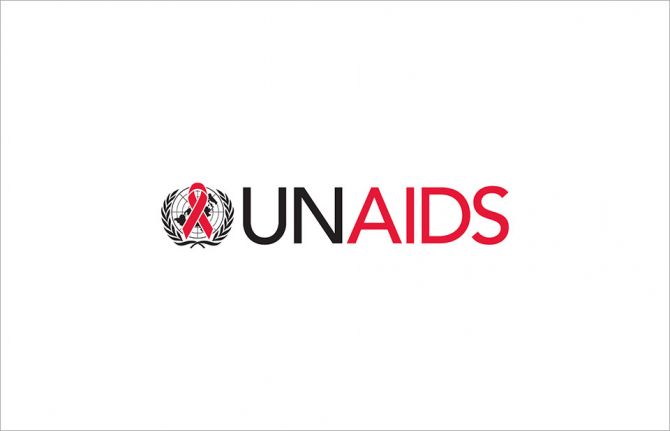
Media Advisory
Launch of UNAIDS Global AIDS Update 2025
01 July 2025 01 July 2025New HIV infections have been reduced by 40% since 2010, and 4.4 million children have been protected from acquiring HIV since 2000. More than 26 million lives have been saved. The response to HIV is one of the most successful public health interventions in history.
However, this phenomenal progress risks being reversed. Sudden, drastic cuts from a number of donors have sent shockwaves through global health. UNAIDS’ new report, AIDS, Crisis and the Power to Transform, shows the impact the cuts are having globally. UNAIDS estimates that if the world does not act, there could be an additional 6 million new HIV infections and 4 million AIDS-related deaths by 2029.
The report highlights the measures some countries are taking to fill the gaps and sustain the response into the future. However, for many, that future remains uncertain.
The HIV response was forged in crisis–and was built to be resilient. Communities, governments, and the United Nations are all transforming to meet this moment and deliver on the promise of ending AIDS as a public health threat by 2030.
WHAT: Launch of UNAIDS Global AIDS Update - AIDS, Crisis and the Power to Transform in partnership with the South African National AIDS Council (SANAC)
WHEN: Thursday, 10 July 2025
TIME: 11:30-12:30 Central African Time and CEST / 09:30-10:30 GMT
WHERE: Bertha Gxowa Hospital, Angus St, Germiston, Johannesburg, South Africa
SPEAKERS:
- Winnie Byanyima, Executive Director of UNAIDS and Under-Secretary-General of the United Nations
- Aaron Motsoaledi, Minister of Health of South Africa
- Helen Rees, Executive Director, Wits RHI
- Mbulelo Dyasi, Executive Director of SANARELA (South African Network of Religious Leaders Living with or Personally Affected by HIV & AIDS)
Watch livestream on 10 July via zoom
For access to the embargoed report or interviews please contact:
UNAIDS Communications
Charlotte Sector | tel. +41 79 500 8617 | sectorc@unaids.org
Michael Hollingdale | tel. +41 79 500 2119 | hollingdalem@unaids.org
UNAIDS
The Joint United Nations Programme on HIV/AIDS (UNAIDS) leads and inspires the world to achieve its shared vision of zero new HIV infections, zero discrimination and zero AIDS-related deaths. UNAIDS unites the efforts of 11 UN organizations—UNHCR, UNICEF, WFP, UNDP, UNFPA, UNODC, UN Women, ILO, UNESCO, WHO and the World Bank—and works closely with global and national partners towards ending the AIDS epidemic by 2030 as part of the Sustainable Development Goals. Learn more at unaids.org and connect with us on Facebook, Twitter, Instagram and YouTube.
Contact
Charlotte Sectortel. +41 79 500 8617
sectorc@unaids.org
Michael Hollingdale
tel. +41 79 500 2119
hollingdalem@unaids.org
Documents
2025 Global AIDS Update — AIDS, Crisis and the Power to Transform
10 July 2025
A historic funding crisis is threatening to unravel decades of progress unless countries can make radical shifts to HIV programming and funding. The report highlights the impact that the sudden, large-scale funding cuts from international donors are having on countries most affected by HIV. Yet it also showcases some inspiring examples of resilience, with countries and communities stepping up in the face of adversity to protect the gains made and drive the HIV response forward.

